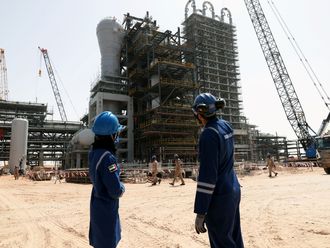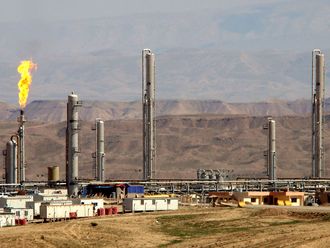Beirut: Lebanon plans to begin partially privatising its national carrier this year, the company's chairman said yesterday, as carrier pushes ahead with plans to rebuild its image as one of the region's top airlines following years of civil war and the global financial crisis.
After a two-year delay caused by the world's worst recession in over six decades, officials will begin the process for an initial public offering (IPO) this year and Middle East Airlines' (MEA) shares will be listed on the Beirut stock exchange in 2011, MEA chairman Mohammad Hout said.
The carrier, which before 1975 was ranked among the Middle East's best airlines, has been majority owned by the Central Bank of Lebanon after its rescue from bankruptcy 14 years ago. MEA fell on hard times between 1975 and 1990 because of Lebanon's civil war.
Hout told The Associated Press in an interview he believed that the central bank's governor "will take a decision to start [the IPO process] in 2010 and the process will be finished in 2011."
Riad Salameh, the bank's governor, had said in January that Lebanon plans to raise some $250 million (Dh919.5 million) from the 25 per cent sale of MEA this year.
MEA, which was founded in 1945, has 13 planes in operation and serves 29 destinations. Two more planes will be received by the company next month, Hout said.
The company faces an uphill struggle to rebuild its image and fleet, which were hard hit by the civil war. The conflict devastated tourism in the country, forced repeated airport closures in the Mediterranean nation and left several MEA planes destroyed by shelling as Lebanon's rival factions battled for control of the country.
MEA now faces stiff competition from other regional carriers based in countries flush with oil wealth, such as Qatar, the United Arab Emirates and Saudi Arabia.
Economist Louis Hobeika said selling part of MEA will be a good step adding that the whole company should be sold eventually. He said such a step will lead to more competition, reduction of prices and absorb some of the high liquidity in the country.











